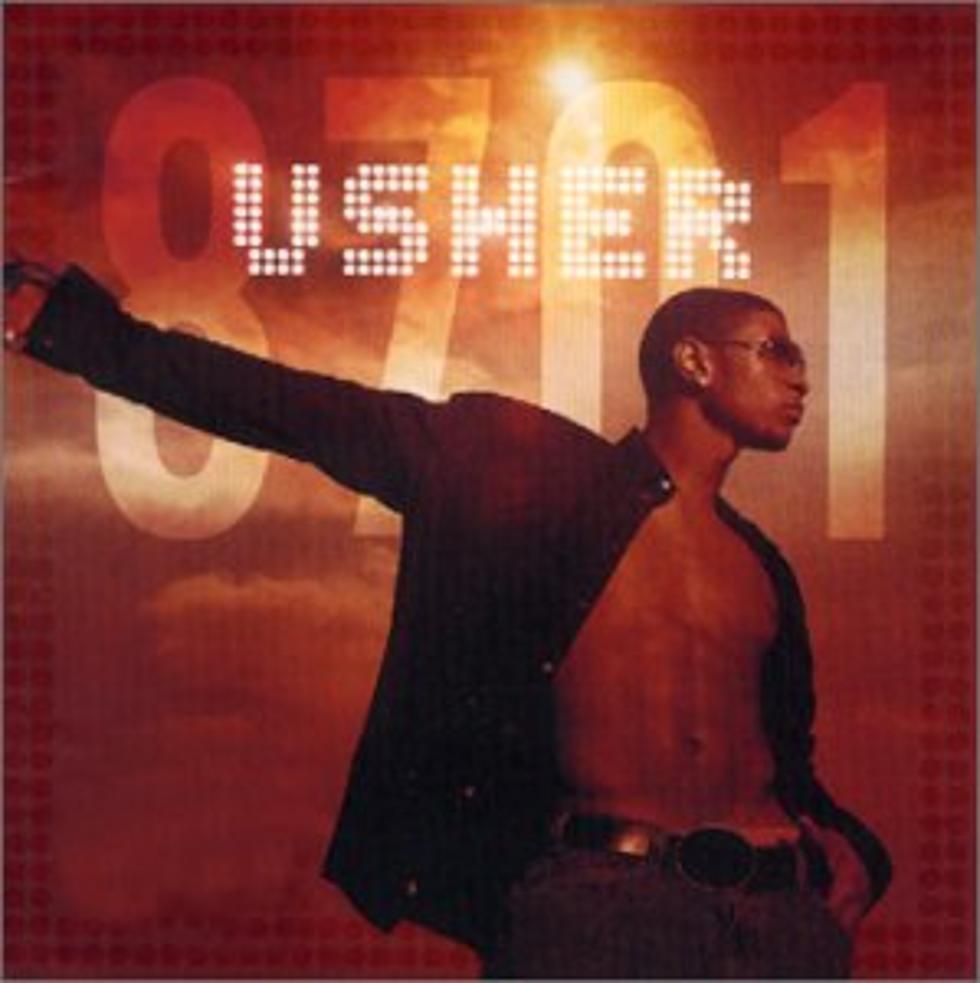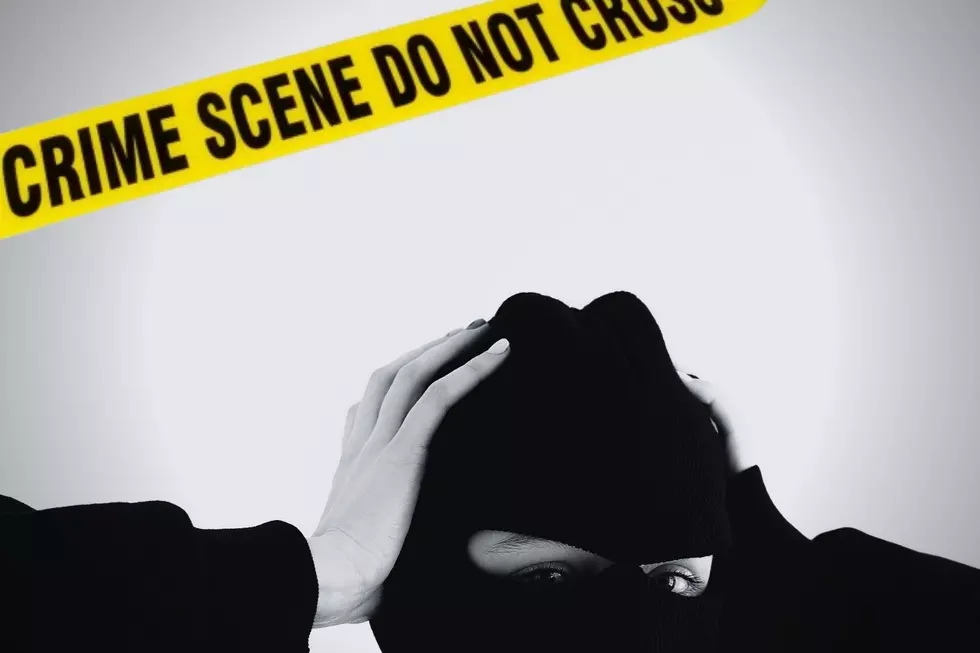
How Usher’s ‘8701’ Transcended Him from Teen Heartthrob to R&B’s Leading Man
Making the transition from teeny-bopper heart-throb to a leading man and bonafide sex symbol has been a crap-shoot in many genres, but especially in R&B. For every Stevie Wonder and Michael Jackson, there's a Tony Thompson and Ralph Tresvant. Even Bobby Brown, who was once crowned the King of R&B during his peak, suffered a steep fall from grace before he was in his mid-20s.
With Brown's downslide, it left behind a vacant spot for the next R&B contender to step in and fill. Enter Usher Raymond IV.
Usher, who would be the next great R&B hopeful to successfully evolve into a true adult superstar. That evolution, which was spurred by the singer's multi-platinum sophomore album, My Way, was completed with his third LP, 8701, which arrived in August of 2001. The album, which came four years after the release of My Way, would be the one album out of Usher's catalog that had the most riding on it. But as he had just proved with his previous outing, expectations have been nothing but fuel for Usher since he first stepped into the music industry.
After deciding to dedicate his life to music in 1987, which is in-part the inspiration behind the title, 8701, Usher would make his first foray into the music biz as a member of a local quintet called NuBeginnings, appearing on the album, NuBeginning Featuring Usher Raymond IV. The album, which was only available regionally and through mail-order, would fail to catch on and Usher's mother, who also doubled as his manager, would pull him out of the group, instead deciding to embark on a career as a solo act.
After an impressive appearance as a contestant on Star Search, Usher caught the eye of a talent scout for industry titan L.A. Reid's record label, LaFace Records, which housed some of the hottest R&B talent at the time. Signing the young, charismatic performer on the spot after an impromptu audition, Usher became the hit factory's newest act, and would immediately make a good first impression with his debut single, "Call Me a Mack," which Usher contributed to the soundtrack for the 1993 film, Poetic Justice.
The teenage ladies man would begin work on his eponymous solo debut, honing his craft under the tutelage of Sean "Puffy" Combs. After being whipped into shape and molded by the fast-paced lifestyle in New York City, LaFace unleashed Usher's debut album in August of 1994, which peaked at No. 25 on the Billboard Top R&B/Hip-Hop Albums chart. Spawning three successful singles, one of which - "Think of You" - landed at No. 7 on the Hot R&B/Hip-Hop Songs chart, Usher would establish himself as a young artist with promise, but failed to light the world on fire in comparison to fellow young R&B acts like Tevin Campbell, Aaliyah, Brandy, and Monica, all of whom had achieved platinum success while Usher would fail to go gold until much later after its release. His future in the music industry in limbo, Usher retreated to the open-mic and live showcase circuit, continuing to build his chops as a singer, as well as his fan base, impressing L.A. Reid enough to bet the bank on Usher and throw the kitchen sink into his sophomore album, My Way.
With proven hit-maker Jermaine Dupri overseeing the album, Usher's career saw a breakthrough once My Way's lead-single "Make Me Wanna" hit radio, debuting at No. 25 on the Billboard Hot 100 chart and peaking at the No. 2 spot for seven consecutive weeks. "Make Me Wanna..." would put Usher on the map, as would subsequent singles like "Nice & Slow" and the album's title-track, pushing My Way past the 6x platinum mark, one of the greatest sophomore rebounds in the past twenty years.
Suddenly, Usher went from the verge of losing his record deal to being one of the hottest young stars in all of music; the kind of star that guys wanted to be and girls wanted to be with. Now, he was one of the big dogs, touring alongside legends like Mary J. Blige and Janet Jackson, ushering him, in a sense, into the spot for the next great male vocalist in R&B.
The charm and good looks that were on full display in all of the music videos that accompanied the singles from My Way would serve Usher well as he moved into adulthood, when Hollywood began to beckon. Finally on par with fellow teenage darling Brandy, in terms of visibility, Usher would step into a recurring role as her love interest on the hit sitcom Moesha, and branch off with roles in the 1998 science-fiction teen horror film The Faculty, as well as being cast as the lead in Light Up, which featured heavyweights like Forrest Whitaker, Vanessa L. Williams, and Rosario Dawson. But despite releasing a live album in 1999, and popping up on the small and big screen, fans began to clamor for a proper follow-up to My Way, but were appeased when Usher announced plans to release a third solo album, titled All About U, which was slated to touch down in early 2001.
However, when the album's intended lead single, "Pop Ya Collar," failed to make an impact, All About U would be retooled, with Usher changing the title to 8701, which also served as the album's release date. Whereas the production on My Way was overseen by Jermaine Dupri and others, 8701 included a hit list of the top producers in hip-hop and R&B.
Aside from Babyface and Dupri, 8701 would be molded by contributions from the likes of the Neptunes, P. Diddy, Jimmy Jam & Terry Lewis and Bryan Micheal Cox, giving the album a polished sheen that was in-step with R&B in the new millennium. 8701 kicks off with "Intro-lude 8701," on which Usher apologizes for his hiatus while giving fans a summary of what the past few years of his life had shown him, before listeners are drawn in by the breezy appeal of the album's introductory cut, "U Remind Me." Written by Anita McCloud and Edmund Clement, the latter of whom also co-produced the track, alongside Jam & Lewis, "U Remind Me" is centered around a moment of deja vu where Usher comes into contact with a prospective lover who possesses qualities that remind him of a former flame he parted ways with on bad terms.
"U Remind Me," which was chosen as the lead single from 8701, would signaled Usher's triumphant, albeit overdue, return to the music scene. The young singer would link up with his former mentor P. Diddy on "I Don't Know," a Neptunes-produced club banger that sees Usher prowling for a hottie on the dance floor to enjoy his night with. The first tender moment on 8701 comes via "Twork It Out," a guitar-laden offering produced by Jam & Lewis that is tailor made for an evening of love-making and reveals a glimpse of the mature ladies-man that Usher intended to showcase to the world on this release.
8701's next selection, "U Got It Bad," would become a definitive moment in Usher's career, not to mention one of the more memorable R&B hits from the early '00s. The song, which served as the formation of the hit-making formula that is the pairing of Usher, Jermaine Dupri, and Bryan Micheal-Cox on the one track, would become the second chart-topping single released from 8701.
"U Got It Bad," which was inspired by an encounter in the studio with Usher and one of his female companions, would become the lovelorn anthem for anyone going through a breakup or in an intense relationship and still resonates with listeners today. "If I Want To," an underwhelming, yet serviceable tune that sees Babyface, Dupri, and Micheal-Cox each manning the boards, falls short of the magic you'd expect after seeing those three names on paper. Usher fares a bit better on "I Can't Let U Go," but Dupri's incessant screaming on the song's adlibs weighs down the track and puts a damper on its luster.
8701 reaches a crescendo with "U Don't Have To Call," an addictive Neptunes-produced composition that sees Usher opting for a night on the town with the fellas over moping at home, waiting on a call from his estranged girlfriend. Released as the third single from 8701, "U Don't Have To Call" gave Usher his third consecutive Top 5 Billboard hit, completing one of the more impressive trifectas of the era for a male solo act.
One highlight of 8701 that rivals its singles is "Can U Help Me," a song that brings to mind New Edition's lush ballads ("Can You Stand the Rain"), but without coming off as a lazy retread. The winning streak continues on "How Do I Say," an exotic offering that's as sensuous as anything on 8701, but the vibe is killed with "Hottest Thing," which misses the mark and is one of the album's more pedestrian moments. A song from an R&B with a title like "Good Ol' Ghetto" usually amounts to a disaster and a cheesey attempt at professing their love for "the hood," but Usher avoids this trap, delivering an enticing mid-tempo jam that is sure to win listeners over. After taking a "U-Turn" with Jermaine Dupri, Usher closes out 8701 with "U R the One," a disappointing conclusion to what proves to be an otherwise impressive body of work.
While 8701 wasn't an undeniable magnum opus, and would fall short of My Way in the sales department, it was by far the most important album of his career and would successful solidify his evolution into one of R&B's top male stars. The project would sell over 4.6 million copies and became the most successful R&B release for a male singer of that year. The LP also serves as the bridge that would bring Usher to create his classic follow-up, Confessions, four years later.
Overall, 8701 may not stand out in Usher's expansive discography, but it's an album that surely will please any R&B fan who came of age when white durags and 2-way pagers were the rage in 2001.
More From Q92







